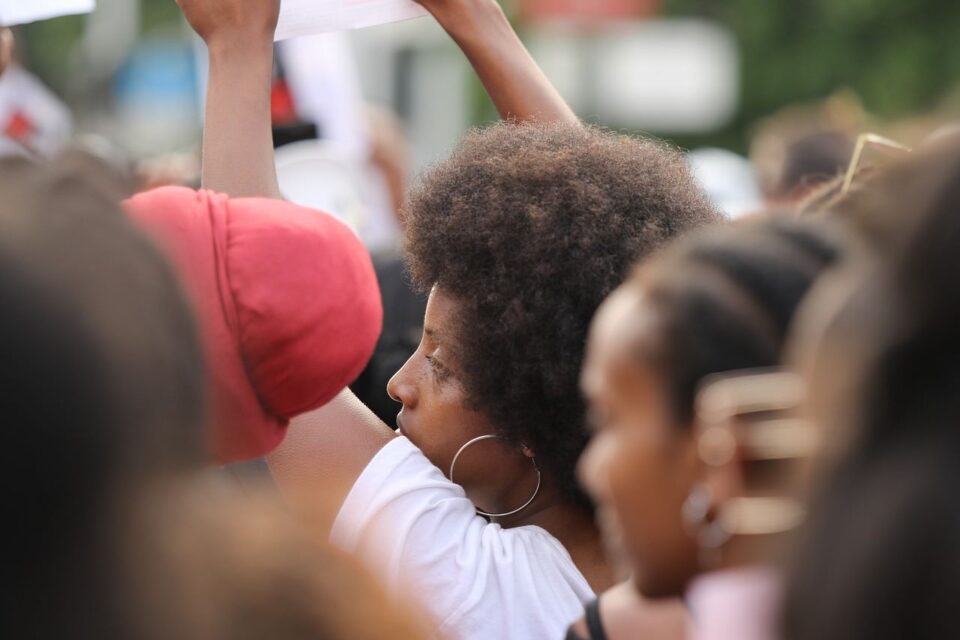Drop Charges; Ensure Due Process; End Crackdown on Dissent
(Abuja, September 6, 2024) – Nigerian authorities have charged 10 protesters who were arrested during protests across Nigeria in August 2024 with treason, which carries a possible death penalty, Human Rights Watch said today. The government should drop the charges.
According to legal sources consulted by Human Rights Watch, the 10 protesters are among the 124 people arrested in Abuja and other states, including Kano and Kaduna, after civil society-led protests, tagged #EndBadGovernance, began on August 1, calling for an end to economic hardship. The police announced the charge of conspiracy to commit treason on September 2 at a Federal High Court in Abuja for attempting to destabilize Nigeria, seeking to remove the president, waging war against the government, and inciting mutiny, among other reasons.
“By charging protesters with treason, the Nigerian authorities are sending a troubling message about their intolerance for dissent,” said Anietie Ewang, Nigeria researcher at Human Rights Watch. “Instead of equating protesting with a crime punishable by death, the government should uphold Nigerians’ right to freedom of expression and listen to their grievances.”
Deji Adejanu, a lawyer representing the 124 protesters, told Human Rights Watch that his legal team made several attempts to visit the protesters in custody at the Police Intelligence Response Team office in Abuja, but that the authorities refused to grant them access. He said that they had no contact with any of the detainees from the time of their arrest until the arraignment proceedings on September 2, and that the authorities had not officially informed them about the session. Adejanu said the protesters charged were in handcuffs, looked malnourished, and had rashes on their bodies.
All 124 protesters, including children aged 14 to 17, were transferred from police custody to correctional or youth detention centers following an August 24 court order to hold them for 60 days until an investigation is concluded and charges are brought against them. This order appears to violate Nigeria’s administration of criminal justice law, which states that pretrial detention orders should not exceed 14 days, following which another application by the police can be made for 14 more days, stating why an extension is necessary.
The Federal High Court in Abuja set a bail hearing on September 11 for the 10 protesters charged. The authorities should protect due process rights for everyone, including the right to a fair trial, Human Rights Watch said.
Among those arraigned on September 2 was Angel Innocent, a 51-year-old single mother who participated in the protests at Moshood Abiola Stadium in Abuja. She was featured in a television interview shared on social media in which she accused government officials and other politicians of paying people 5,000 naira (about US$3) to disrupt the #EndBadGovernance protests at the stadium.
In recent months, the authorities have intensified a crackdown on critics and journalists, marked by numerous instances of abductions, unlawful arrests, and detention. On August 5, Issac Bristol, a social commentator alleged to be in charge of an anonymous social commentary account known as @PIDOMNIGERIA on X (formerly Twitter) was reported missing. Following public outcry, the police confirmed on August 24, almost 3 weeks later, that he was in their custody.
Bristol had been secretly arrested at a hotel in Port Harcourt, River State, and taken into police custody in Abuja. He was charged at a Federal High Court in Abuja with crimes including promoting the #EndBadGovernance hashtag, disseminating false information intended to disrupt law and order, obtaining and sharing classified information, and money laundering.
Other actions by the authorities have also raised significant concerns. In July, a federal legislator, Tajudeen Abass, introduced the Counter Subversion Bill, which he claimed was aimed at enhancing Nigeria’s counterterrorism framework by addressing subversive activities. The bill, which was eventually withdrawn following public outcry, was reported to include several troubling and overly broad provisions.
These included a penalty of up to 5 million naira (about $3,100) or a prison sentence of five to ten years, or both, for refusing to recite the national anthem; a fine of 4 million naira (about $2,500) or up to a two-year prison sentence for insulting, defaming, or discrediting community, religious, or government leaders; and a fine of 5 million naira or up to a 10-year prison term, or both, for activities that foster mistrust, intolerance, or violence threatening Nigeria’s peace and security.
Adejanu said that “while critical issues like the economy and insecurity require urgent attention, the current administration is instead focusing on undermining human rights.” He said that “activists vocal on social media have expressed concerns about their safety, as individuals are being arrested and charged with treason merely for protesting or critiquing the government.”
“In their relentless effort to suppress dissent, the Nigerian authorities are not only violating more rights and the rule of law, but also deepening public distrust in the government,” Ewang said. “The authorities should immediately drop the charges brought against those rightfully exercising their rights and release them immediately.”

